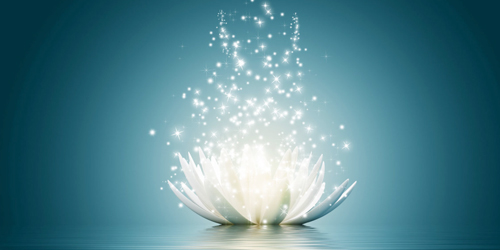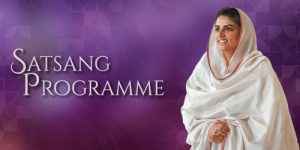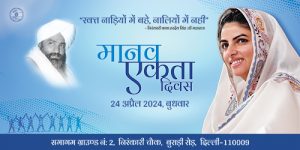Born into the human world, we have always existed. This is because God, who is present within us, has always existed. We are born without fear, without prejudice, without duality, without anger, without discrimination, and without judgement. We are born divine. However, as we begin to grow we are faced with a barrage of images, stimuli, sensory overload that drowns us, encouraging a dual-thinking mind.
More than any other time in history, our senses are overwhelmed with images – TV screens, tablets, mobile phones. The list goes on. What do we see?
They say, ‘seeing is believing’. Is that so? This is a well-known proverb which dates back to ancient Greek times, indicating that we have to see something for us to believe that it exists. Perhaps this is why some people struggle with the concept of God. They maintain that they would need some tangible proof that God exists. In the absence of such proof, they simply do not believe in the existence of the omnipresent God.
Is there really no tangible proof of the existence of God – this beautiful, omnipotent Nirankar? God is, in fact, present in every aspect, every particle of this wonderful creation. That includes each and every human being. Wisdom of Solomon (2:23) reminds us:
For God created man to be immortal,
and made him to be an image of his own eternity.
At the Centre for Oneness, that is why we greet one another with humility, by touching each other’s feet. We acknowledge the presence of divinity in one another. This stops us from feeling superior, dualistic and judgmental.
In the Gospel of Luke, it is written:
The Spirit of the Lord is upon me, because he has anointed me to proclaim good news to the poor. He has sent me to proclaim liberty to the captives and recovering of sight to the blind, to set at liberty those who are oppressed, to proclaim the year of the Lord’s favour. Luke 4:18
The poor are those who are offered the ‘free gift’, God’s love. God demands nothing in return. Liberty to the captives refers to those who have been bound by the shackles of duality and are freed from the bondage by the power of the Gyan, through the Grace of Her Holiness Satguru Mata Sudiksha ji.
We are no longer poor but rich. We have the freedom to be ourselves; it is exactly as Nirankar made us. The scales from our eyes have fallen away and we are blessed with great spiritual insight. We have met our Soul; we have met with God.
It gets better. Our new sight reveals the divine dance in all of creation. Everything is being born then passes away, and then reborn. What a divine existence. The Gyan reveals the eternal beauty in everything. We seek this beauty and find it in all living creatures, including ourselves.
Everything passes away. But with the grace of Satguru, it is revealed that the essence of us, our God Nirankar, is eternal.
Look around you, look at the fields; already they are ready for harvest! Already the reaper is being paid his wages, already he is bringing in the grain for eternal life, and thus sower and reaper rejoice together”
(John 4:35-36, Jerusalem Bible).
Non-dual knowing is learning how to live satisfied in the naked now, which some called “the sacrament of the present moment.” This consciousness will teach us how to actually experience our experiences, whether good, bad, or ugly, and how to let them transform us. Words by themselves divide and judge the moment; pure presence lets it be what it is, as it is.
At the centre of our being is a point of nothingness, which is untouched by sin and by illusion. It is a point of pure truth, a point or spark which belongs entirely to God, which is never at our disposal, from which God disposes of our lives, which is inaccessible to the fantasies of our own mind or the brutalities of our own will. This little point of nothingness and of absolute poverty is the pure Glory of God within us.
(Thomas Merton, CGB 142).
When we touch this domain, through the grace of Mataji, we begin to live a divine existence, which frees all our dross and helps us to see God clearly in everything and in everyone.
– Helen Richards, UK








